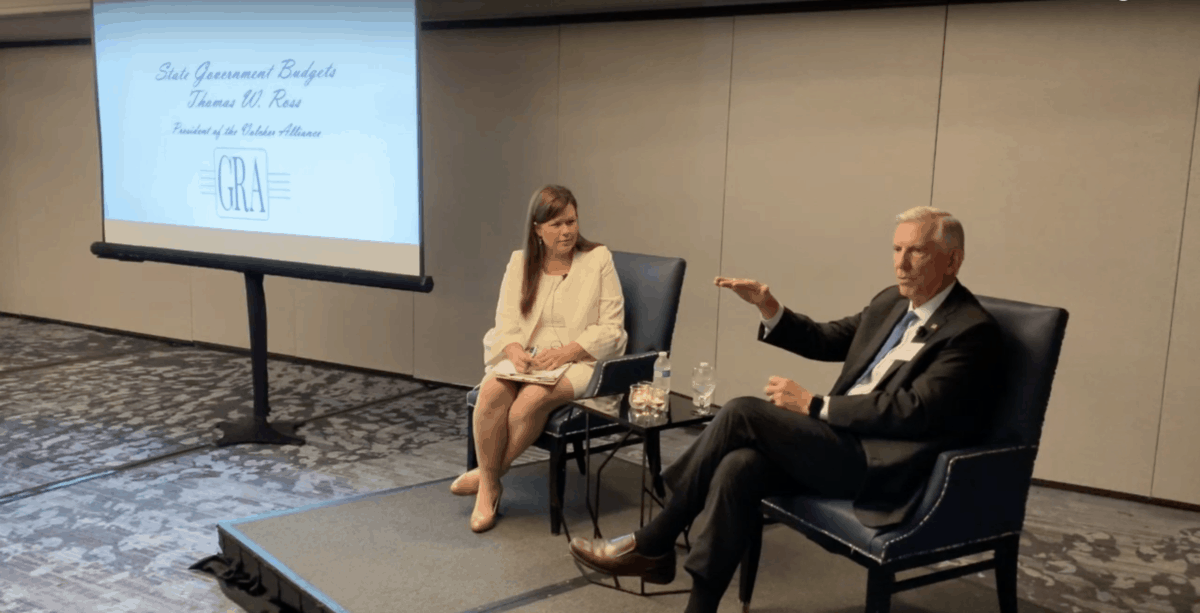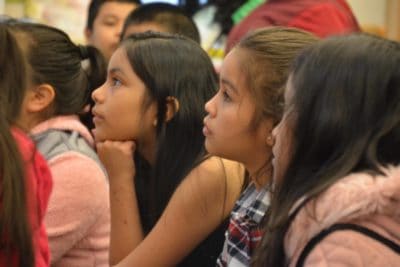
In 1930, during his surrealist period, Salvador Dali produced a painting titled, “The Average Bureaucrat.” Dali expressed his contempt for the bureaucracy of his time through a mannequin-like figure with no ears and shells in his head. The painting, which I saw hanging in The Dali Museum in St. Petersburg, FL., struck a jarring coda to the annual meeting of the Governmental Research Association this week.
GRA is a national organization of state and local nonpartisan think-tanks in the good-government tradition. (EdNC’s CEO Mebane Rash serves as GRA president.) Two oral presentations, augmented by two reports from the Pew Research Center, depicted a vulnerable democracy that requires fresh efforts to bolster civic and interpersonal trust, effective government, and a robust news media.
Pew released this week a richly detailed and nuanced exploration of “trust and distrust in America.” In general, it found “declining trust,” but also hope for a restoration of trust in institutions and among citizens. Some citizens attributed the decline to “increased loneliness and excessive individualism.”
“About half of Americans (49%) link the decline in interpersonal trust to a belief that people are not as reliable as they used to be,” says the Pew report. “Many ascribe shrinking trust to a political culture they believe is broken and spawns suspicion, even cynicism, about the ability of others to distinguish fact from fiction.”
In citizen attitudes toward an array of occupations and institutions, public school principals and teachers received relatively high trust ratings — stronger among Democrats than Republicans, among older citizens than young adults.
In an interview with Rash at the conference’s awards dinner, Thomas Ross, the former president of the University of North Carolina who is now president of the Volcker Alliance, said his national organization’s research shows disaffection with state and local government does not reach the depths of discontent with gridlocked national affairs.
Still, Ross said, “Democracy is fragile right now, more fragile than when we went through civil rights, when we went through Watergate, when we went through impeachment.”
The decline in trust pre-dates the Trump presidency, but Ross said Trump is an expression of it. He pointed to the wealth divide and gerrymandering as factors in eroding common ground.
Neither Ross nor GRA members would demean civil servants as Dali did in “The Average Bureaucrat.” GRA organizations work to bring data-based analysis to public leaders and to promote effectiveness in the day-to-day workings of government. Ross urged more attention to the aging of the governmental workforce and the relative dearth of young professionals entering public service.
“If we can’t attract talent into public service,” he said, “then government will not only continue to lose trust, it will actually not function well.” Without talent, he said, “our civil society won’t survive.”
The Pew Research Center reported on the depletion of talent in another field crucial to transparent democracy — journalism — in its annual “State of the News Media.’’ Much of this decline has resulted from the loss and down-sizing of ink-on-paper publications.
“From 2008 to 2018, newsroom employment in the U.S. dropped by 25%,” Pew reports. “In 2008, about 114,000 newsroom employees — reporters, editors, photographers and videographers — worked in five industries that produce news: newspaper, radio, broadcast television, cable and “other information services” (the best match for digital-native news publishers). By 2018, that number had declined to about 86,000, a loss of about 28,000 jobs.”
Bill Nichols, a long-time USA Today correspondent and a founding editor of the online POLITICO, reflected on “this awful depressing tragic story of American journalism.” Whereas news organizations used to compete for scoops, he said, now the need is for partnerships among news organizations and between local media and GRA-type think-tanks.
To fill a vacuum in coverage, Nichols has taken a lead in developing the “Spotlight on Poverty and Opportunity” online news organization. “Digital-only journalists have tripled,” he said, citing the rise of substantive online media as “hopeful signs” for the future of journalism in the public interest.
For his part, Ross expressed hope that Americans will not give up on the “general welfare” injunction of the Constitution. Americans, he said, would discover “a lot more common ground when we sit down and listen.”


